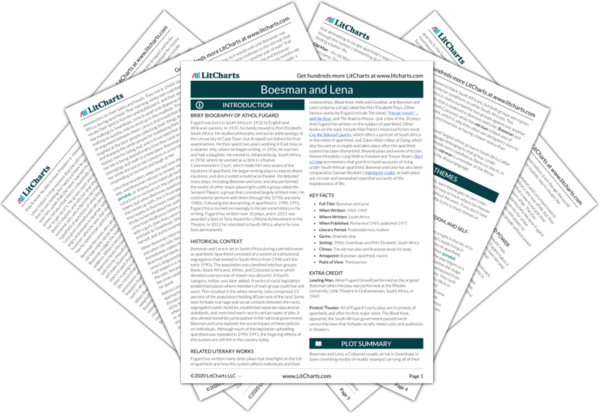In the play’s final moments, Fugard ties in a few of its key themes: Lena once again demonstrates her desire for connection, and to have her life witnessed. Fugard also illustrates how their relationship has changed: even if Boesman might still be violent, she puts his violence on her own terms and is now the one in control of their pace. And as they walk off into the darkness, Fugard implies a call to action, asking the white South Africans in his intended audience to address how the system of apartheid strips people of the ability to live a meaningful life, even if it doesn’t strip them of their determination and hope to do so.
